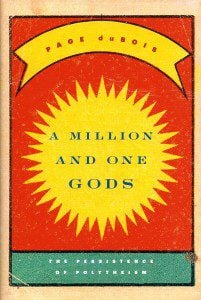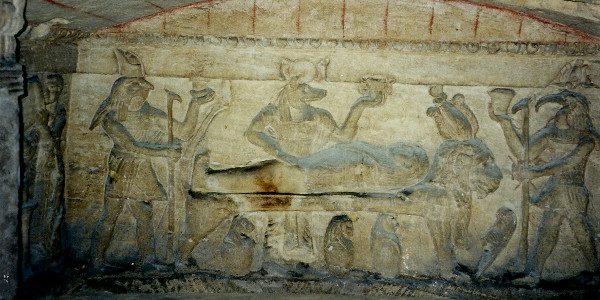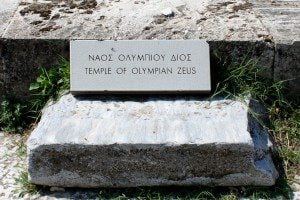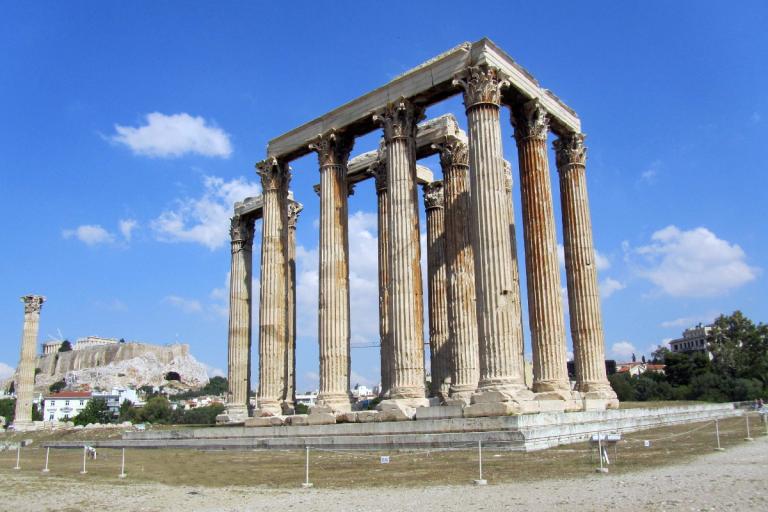 Understanding polytheism is easy.
Understanding polytheism is easy.
The wide variety of religious experiences (both individually and across the world) leads to a conclusion that is both intuitive and logical: the Gods are many, not one. Honoring our ancestors seems natural even to monotheists, and many of us who have experienced the death of a loved one have conversed with them in dreams and meditations. The strong opposition to idolatry by fundamentalist Muslims demonstrates the difficulty of maintaining a strictly monotheistic practice. If they didn’t continually rant against it, people would naturally venerate ancestors, spirits of place, and other spiritual beings. As Page duBois explained in A Million and One Gods, it appears that polytheism may be humanity’s default setting.
Understanding the multiplicity of the Gods is hard.
Read my many posts on Morrígan and you’ll see they’re almost all written in the singular. What I have experienced feels like one deity, so that’s how I’ve always conceived of Her. But in the stories we have of Her, sometimes She is portrayed as a singular being and sometimes as a triple Goddess. Other times it appears the Morrígan is a job title, not a proper name. Is the Morrígan one, three, or many? Morpheus Ravenna went through the lore in great detail in The Book of the Great Queen and came to no clear conclusions.
There’s a similar situation with the Gods of Egypt. Pharaonic Egypt existed for almost four thousand years. During that time various deities were combined, conflated, and worshipped in very different manners. That presents a challenge for those of us working with Them here and now. Is the creator God Ra, Amun-Ra, or Ptah? Is Set a God of chaos and destruction or is He the protector of Ra in the Barque of a Million Years?

Sobekneferu touched on some of this in her presentation at Many Gods West. She encouraged those who follow Gods who have been demonized to relate to Them as They appear in their older lore. The Anomalous Thracian approached it from the perspective of place in his talk on regional cultus. Zeus Olympios was understood and worshipped differently from Zeus Chthonios and Zeus Aetnaeus. If you simply pray to Zeus, the “cosmic switchboard” may be able to route your call where you want it to go, but maybe not.
 I’ve always had trouble with this. I mean, isn’t this leaning toward soft polytheism (all Gods are one God)?
I’ve always had trouble with this. I mean, isn’t this leaning toward soft polytheism (all Gods are one God)?
No. The Gods are who and what They are. But time matters. Place matters.
If you could go back 25 years and talk with the Chattanooga version of John Beckett, you’d see someone who was younger (obviously) with only a few grey hairs and a smaller waistline. When I lived in Chattanooga I attended a Methodist church and tried to be a Christian. I drove a pickup truck (which I actually used to haul stuff, unlike so many of the pickup drivers I see today) and my writing was almost almost all business papers for graduate school. In those days, you might want to talk to me about balancing an assembly line or coaching a low-level softball team.
The Texas version of John Beckett is older, greyer, and heavier. I attend a UU church and I try to be a Pagan. I drive a Prius and I write on religion for a public audience. I’m also a lot more confident and a lot happier than I was then. You might want to talk to me about Druidry, or polytheism, or even photography.
I’m the same person I always was – I like to think I’m now a truer version of my real self – but if you tried to get to know me in each situation, you’d have two very different experiences. Even if you met me in Chattanooga today, you’d have a different experience than if you met me in Denton. Place matters. Every time I go back to Chattanooga to visit family and friends I’m reminded that while it’s become a great small city, it’s no longer home.
Beyond that, your experience of John Beckett depends on why you approach me in the first place. If you want to talk about my particular blend of polytheistic Druidry, you’re going to have a very different experience than if you want to talk about Industrial Engineering.
Whether we can ever truly know another person is a question philosophers and poets have struggled with for centuries. But if time and place can have that much of an impact on your experience of an ordinary human with an ordinary lifespan, how much of an impact can it have on your experience of a God who is far larger and more complex, who has existed for far longer, and who may very well exist simultaneously at different points in time?
One of the ways we are rebuilding the cults of the Gods is by comparing and contrasting our experiences of Them. This is why I love books like Hoofprints in the Wildwood – we get to see what other people’s experiences have been like. Where we have common experiences and common interpretations, my confidence in my own thoughts are strengthened. Where I see others doing things that have never occurred to me, I have a list of new practices to try. And sometimes I see people whose accounts make me question if they’re dealing with the same God… or with any being outside their own heads.
Contrary to what others have suggested, it’s perfectly OK to question someone else’s interpretation of their religious experiences, and it’s very necessary to question if their interpretation is appropriate for you. It’s not OK to blatantly dismiss their interpretation out of hand.
As the Thracian pointed out in his presentation, that doesn’t mean every way is equally good, and it certainly doesn’t mean “I can do whatever I want.” There is no relationship in either of those approaches – they dismiss the agency of the Gods and reduce Them to the essence of Their functions instead of the divine persons They are.
So, are all the Morrígna one, three, or many? I still don’t know, and I suspect I can’t know. But where we have different names, it is reasonable to expect we will have different experiences… perhaps subtly different, perhaps radically different. More importantly, as our prayers, meditations, offerings, and ecstatic experiences of deities begin to differentiate, let’s remember that we are doing the same things our ancestors did when they differentiated Zeus Olympios from Zeus Chthonios.
Time matters. Place matters. The Gods are many, and the Gods are multiple.

















